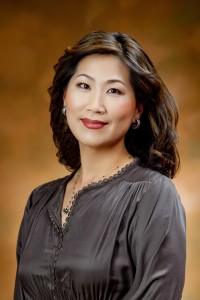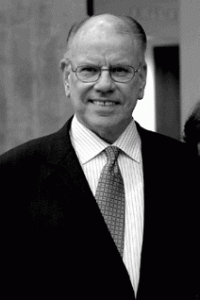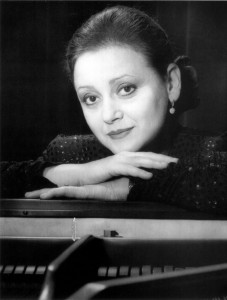Utah Opera is bringing back Giacomo Puccini’s Madame Butterfly in a new production that features Yunah Lee in the title role. It opens Oct. 11 in the Capitol Theatre and runs through Oct. 19.
The story is a tragedy of epic proportions; from the start one realizes that it can’t end well for any of the principals. The libretto is based on a novella by John Luther Long which was dramatized by David Belasco. Cio-Cio San, also known as Butterfly, is a beautiful young geisha who falls in love with Lt. Pinkerton, a dashing American naval officer. He, in turn, is fascinated by this exotic beauty. They quickly marry but unfortunately for Cio-Cio San, Pinkerton has no intention of spending the rest of his life with her. When he is called back the United States, he promises he will return to her. When he finally does come back, after three years, he brings his new American wife with him. Cio-Cio San presents Pinkerton with his son, who was born during his absence. Pinkerton and his wife convince Cio-Cio San to let them have the child and raise him in America. Cio-Cio San, long shunned by her family, realizes she has no future and commits suicide.
Portraying Pinkerton in this production is Eric Fennell, who readily admitted that no one has any sympathy for Pinkerton. “Only his mother loves him,” he said, but also added, “he’s not really a bad guy.”
The problem with Pinkerton, Fennell went on the explain, is that his time in Japan is a journey of discovery. The young lieutenant is naïve and doesn’t know anything about other cultures. “He’s extremely ignorant and he doesn’t know how much he is influencing the situation.”
Cio-Cio San is easy to understand for Lee, because of their common Asian background, she said, adding that she has an affinity for her character. “I understand the culture and I like her. She’s my best friend.” Lee said it’s not difficult to understand that Pinkerton is captivated with Cio-Cio San, because “she is attractive and adorable.” But she is also “very strong and strong on faith.”
Lee has sung Cio-Cio San over 125 times, and as far as Fennell is concerned, she is today’s foremost interpreter of the role. “She is in the prime of her career right now, and this is her best role,” he said. “Yunah is the best Butterfly in the world today. It’s fortunate it worked out with her schedule. Salt Lake City audiences will be in for a real treat.”
Conductor Robert Tweten is impressed with the singers. “This is an incredible cast. Yunah has done a hundred plus performances. You don’t have to teach her anything.”
“Yunah is wonderful. She’s teaching me,” joked stage director Garnett Bruce. That’s quite a compliment, because Bruce is no newcomer to Madame Butterfly; he’s directed 16 productions of the work. “This is a cast of colleagues,” Bruce added. “They make the whole process easier.”
“They feed off each other, and they bring a greater level of energy to the rehearsals,” Tweten said.
This will be the second time that Lee and Fennell have appeared together in Madame Butterfly. “The first time was in 2009 for Opera Saratoga,” Fennell said. But neither he nor Lee are expecting this production to be anything like the one they did five years ago. “You have to try and forget what you did, and react to a new cast,” Lee said. “You can’t recreate the same thing. It’s impossible.” And that’s one way to help keep their interpretations fresh.
This is a new production with new outfits designed and made in Utah Opera’s costume shop. Bruce was involved in the design and color choices of the kimonos the female Japanese characters wear. “I wanted brighter and more vivid colors with flowers to create the illusion of a flower garden,” Bruce said. “The colors are very strong and not typical of traditional kimonos. I wanted to push the envelope a bit since we live in a Technicolor world.”
Tweten said that Madame Butterfly is one of the best operas to see for anyone not familiar with opera. “It’s a great piece to introduce audiences to opera.”
- PERFORMANCE DETAILS
- What: Utah Opera, Madame Butterfly
- Venue: Capitol Theatre
- Time and Date: 7:30 p.m. Oct. 11, 13, 15 and 17; 2 p.m. Oct. 19
- Tickets: $18-$95 ($5 higher when purchased on day of performance); $20 rush tickets available on day of performance for anyone 30 and under
- Phone: 801-355-2787 or 888-451-2787
- Web: www.utahopera.org
- ALSO: Opera Prelude Lecture by Utah Opera principal coach Carol Anderson, in the back of the orchestra seating level in the Capitol Theatre, one hour prior to each performance, free for ticket holders.
- ALSO: Q&A Session with Utah Opera artistic director Christopher McBeth, at the front of the orchestra seating level in the Capitol Theatre, immediately following each performance, free for ticket holders.




